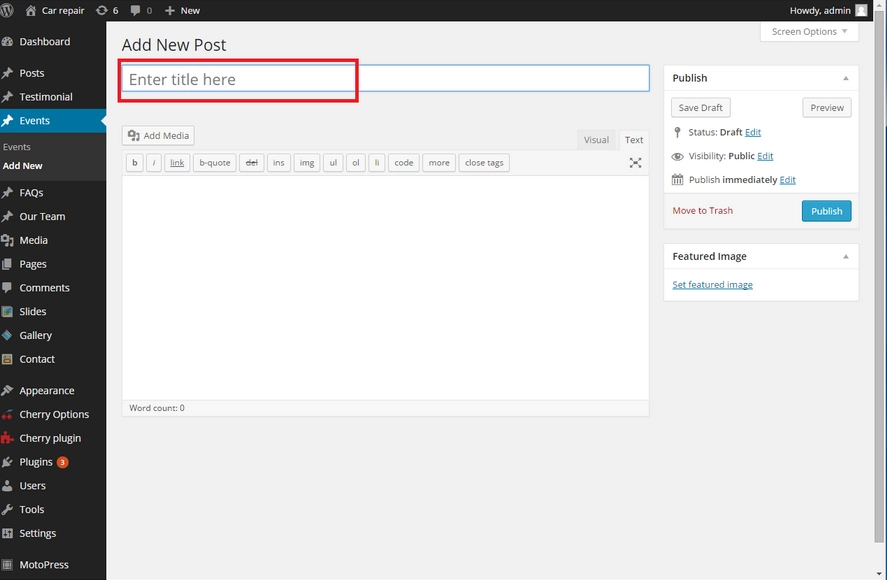Table of Contents
Introduction:
In the dynamic world of Ecommerce, SEO plays a pivotal role in determining success. Understanding the intricacies and leveraging the right tools is key to achieving optimal results. This comprehensive guide explores the significance of SEO for Ecommerce and delves into the must-have tools for elevating your online store’s performance.
Why is SEO Crucial for Ecommerce Success?
Understanding the significance of SEO in the ecommerce landscape is paramount. Ecommerce relies heavily on online visibility, and SEO acts as the guiding force that ensures your products are discoverable by potential customers. A well-optimized website not only attracts organic traffic but also enhances the overall user experience, ultimately leading to increased sales and revenue.
What Differentiates Ecommerce SEO from Traditional SEO?
Ecommerce SEO introduces unique challenges and strategies compared to traditional SEO. The abundance of product pages, dynamic inventories, and frequent updates necessitate a focused approach. Balancing technical optimization with product relevance and consumer intent is the key differentiator, making Ecommerce SEO a specialized discipline.
How Can Keyword Research Tools Enhance Ecommerce SEO?
Leveraging tools to identify and target high-performing keywords is fundamental. Best SEO tools for Ecommerce include advanced keyword research tools that unveil not only popular search terms but also those specific to product queries. This precision enables you to tailor your content and product listings for maximum visibility.
Are Backlinks Still Important for Ecommerce SEO?
While the landscape has evolved, backlinks remain crucial in Ecommerce SEO strategies. Quality backlinks contribute to the authority and trustworthiness of your online store, influencing search engine rankings. Building a robust backlink profile involves strategic partnerships, influencer collaborations, and creating shareable content that naturally attracts links.
Which On-Page SEO Elements Matter Most for Ecommerce Sites?
On-page SEO for Ecommerce goes beyond traditional elements. Optimizing product titles, descriptions, and images, along with clear navigation and a user-friendly interface, significantly impacts rankings. Creating SEO-friendly URLs, incorporating schema markup, and optimizing meta tags are essential practices for ensuring on-page success.
What Role Does User Experience Play in Ecommerce SEO?
User experience is integral to both conversion rates and SEO success in Ecommerce. A seamless and intuitive user interface, fast-loading pages, and mobile responsiveness positively impact rankings. Search engines prioritize websites that provide a positive user experience, reflecting higher rankings and increased customer satisfaction.
How Can Social Media Boost Your Ecommerce SEO Efforts?
The synergy between social media and ecommerce SEO is undeniable. Social signals, such as likes, shares, and comments, contribute to your online authority. Integrating social media into your Ecommerce SEO strategy not only amplifies your reach but also fosters a community around your brand, creating a positive feedback loop.

Are Mobile Optimization and Ecommerce SEO Connected?
Mobile optimization is more than a recommendation; it’s a necessity for Ecommerce SEO. With the majority of online shoppers using mobile devices, search engines prioritize mobile-friendly websites. Responsive design, fast-loading pages, and mobile-specific optimization contribute to higher rankings and improved user satisfaction.
What’s the Significance of Local SEO for Ecommerce Businesses?
Local SEO is instrumental for Ecommerce businesses with physical locations. Optimizing for local searches ensures that your products are prominently featured when users search for products in their vicinity. This is particularly crucial for brick-and-mortar stores with an online presence, enhancing foot traffic and online sales.
How to Utilize Content Marketing for Ecommerce SEO Success?
Crafting compelling content strategies tailored for Ecommerce involves more than just product descriptions. Blogs, buying guides, and informative content related to your products can enhance your website’s authority and attract organic traffic. Utilize content marketing to educate, engage, and build trust with your audience.
What Are the Best Practices for Ecommerce Site Structure and SEO?
Optimizing website architecture for improved search engine visibility is foundational. A clear and intuitive structure, with well-defined categories and a logical hierarchy, enhances user experience and facilitates search engine crawling. Implementing breadcrumbs, XML sitemaps, and ensuring a flat site architecture are recommended best practices.
How Can Ecommerce Platforms Affect SEO Performance?
The chosen ecommerce platform can significantly impact SEO performance. While some platforms offer built-in SEO features, others might require third-party plugins. Evaluate the platform’s flexibility, load speed, and mobile optimization capabilities, ensuring it aligns with your SEO objectives and business goals.
Why is Page Speed a Critical Factor in Ecommerce SEO?
Analyzing the connection between page speed and ecommerce SEO is imperative. Slow-loading pages negatively affect user experience and contribute to higher bounce rates. Search engines prioritize fast-loading websites, making page speed optimization a critical factor for achieving higher rankings and retaining visitors.
What Are the Latest Trends in Ecommerce SEO Strategies?
Staying updated on the evolving landscape of ecommerce SEO is essential for sustained success. Voice search optimization, video content, and artificial intelligence are emerging trends shaping the future of Ecommerce SEO. Being proactive in adopting these trends positions your online store for long-term growth.
Which SEO Tools Are Essential for Ecommerce Success?
Now, let’s delve into the heart of your Ecommerce SEO tools. These tools are indispensable for optimizing your online store and achieving optimal success.
The 10 Best SEO Tools for Ecommerce:
- SEMrush:
- An all-in-one tool offering keyword research, competitor analysis, and site auditing. One of the best SEO tools.
- Ahrefs:
- Known for backlink analysis, Ahrefs also provides robust keyword research and site auditing capabilities. The Most and best SEO tools
- Yoast SEO:
- A WordPress plugin that streamlines on-page SEO, ensuring each product page is optimized.
- Google Analytics:
- Essential for tracking website performance, user behavior, and conversion metrics.
- Google Search Console:
- Offers insights into how Google views your site, identifies issues, and provides performance data.
- Moz:
- Known for its domain authority metric, Moz also provides comprehensive SEO insights and tools.
- BuzzSumo:
- Helps identify trending topics and popular content, aiding in content marketing strategies.
- Screaming Frog:
- A powerful crawler that provides an in-depth analysis of your website’s structure and SEO elements.
- SpyFu:
- Uncover competitors’ PPC and SEO strategies, gaining valuable insights for your campaigns.
- Ubersuggest:
- An easy-to-use tool for keyword research, competitor analysis, and content ideation.
Implementing these tools into your Ecommerce SEO strategy empowers you to make data-driven decisions, optimize your website effectively, and stay ahead of the competition.
How to Measure and Analyze Ecommerce SEO Performance?
Implementing effective metrics and analytics to gauge SEO success is crucial. Regularly monitor key performance indicators (KPIs) such as organic traffic, keyword rankings, conversion rates, and bounce rates. Utilize tools like Google Analytics and Google Search Console to gain actionable insights and refine your strategy accordingly.
What Future Developments Should Ecommerce Businesses Anticipate in SEO?
Looking ahead to emerging trends and advancements in Ecommerce SEO in lahore is vital for staying ahead of the curve. As search engines evolve, anticipate developments in voice search, mobile optimization, and AI-driven algorithms. Being proactive in adapting to these changes positions your ecommerce business for continued success.
General FAQ’s:
Q: Can Ecommerce SEO benefit small businesses as well?
Absolutely, Ecommerce SEO is scalable and can significantly impact small businesses by improving online visibility and attracting targeted traffic.
Q: Are there specific SEO challenges unique to niche Ecommerce stores?
Yes, niche Ecommerce stores may face unique challenges, but targeted SEO strategies can address and overcome these challenges.
Q: How often should Ecommerce businesses update their SEO strategies?
Regular updates are crucial to keep pace with algorithm changes and market trends. Quarterly reviews are recommended for optimal performance.
Q: Is it necessary to hire an SEO specialist for Ecommerce websites?
While it’s beneficial, many Ecommerce businesses successfully manage SEO in-house by staying informed about best practices and utilizing available tools.
Q: Can Ecommerce SEO help improve product visibility on external search engines?
Yes, effective Ecommerce SEO not only boosts visibility on the platform but can also enhance product discoverability on external search engines like Google.
Q: What’s the role of user-generated content in Ecommerce SEO?
User-generated content, such as reviews and testimonials, can positively impact SEO by providing fresh, relevant, and authentic content.
Q: How can Ecommerce businesses recover from SEO penalties?
Recovery involves id:
- Identifying and rectifying the issues
- Submitting consideration requests
Implementing a robust strategy to comply with search engine guidelines.
Caution:
In the ever-evolving landscape of Ecommerce, mastering SEO is non-negotiable for success. Armed with the best SEO tools, a strategic mindset, and a commitment to staying abreast of industry trends, your ecommerce business can not only survive but thrive. For further insights and tools, explore Jointhegrave.com and elevate your Ecommerce SEO game.














Leave a Reply